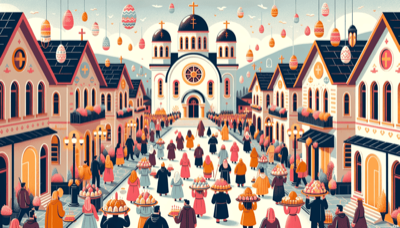We're here to help you keep count of the days to or since a date. Just click the button below and enter your chosen date to get started. Also choose the suggested days or search for a special day above #countingthedays

Orthodox Easter Day in Kosovo is particularly significant for the Serbian Orthodox Christian minority residing in the country. This religious holiday, also known as Pascha, follows the Julian calendar, which often results in a different celebration date from the Western Christian Easter that follows the Gregorian calendar.
The history of Orthodox Christianity in Kosovo dates back to the middle ages when Serbian medieval states and empires were dominant in the Balkan region. Many monasteries and churches built during this period are still important spiritual and cultural sites today.
Orthodox Easter traditions in Kosovo are deeply intertwined with religious customs and practices. Preceding Orthodox Easter is Great Lent, a period of fasting and reflection lasting 40 days. The Holy Week leading up to Easter is particularly solemn, with various services each day marking events leading up to Christ's crucifixion and resurrection.
On Easter Sunday, congregations attend a midnight service that culminates with the Pascal greeting "Christ is Risen" being exchanged among parishioners, followed by a response "He is truly risen," reflecting their joy at the resurrection of Jesus.
While Kosovo predominantly consists of ethnic Albanians who are mostly Muslim or Roman Catholic Christians, Orthodox Christian traditions like Easter help maintain cultural diversity within the nation. These practices not only reinforce religious beliefs but also serve as an expression of cultural heritage for Kosovar Serbs.